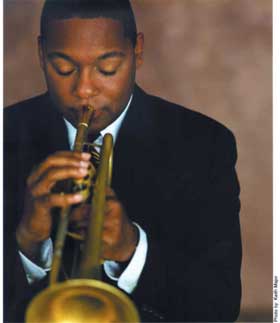Keeping Time: Music Is a Core Subject
Music education nourishes the mind as well as the soul.
Your content has been saved!
Go to My Saved Content.
School administrators facing budget cuts often look to eliminate what they consider "nonessential" programs. Invariably, their red pen lands on the same line item: music class.
It strikes me as strange that music is considered nonessential. More than simply being a source of cultural pride and listening pleasure, music represents a core ingredient in the education of our children.
Music, in its purest form, encompasses the very ideals that we want to impart to our children. Let us consider a few. Because music makes abstract thought concrete, it forces us to develop several important cognitive functions.
The first is memory. Musicians must memorize not only the melody of a piece but also the individual notes that make it up. Within that, music teaches us the language of expression. You and I and Martin Luther King Jr. could read the exact same speech and it wouldn't sound the same. The words are the same, of course, but why is it that Dr. King's voice and tone carried something beyond the words? It's the expressiveness of the performance. Similarly, three people playing a trumpet don't sound the same. They can play the same note or melody, but only some trumpet players have a feeling that touches our heart.
Music also teaches us how to get along with others. Consider the music I love: jazz. Each member of the group can improvise, but none of it works -- for a soloist or an ensemble -- if the musicians do not play in balance. If the drummer, who plays the loudest instrument, decides he wants to be much louder than the bassist, who has the softest instrument, you're going to have discord. This group dynamic teaches the importance of choice, and many choices require some form of sacrifice. You must listen. You must have a conversation. The group must work together to achieve its goals.
Jazz, in many ways, embodies our core democratic principles. The motto of the United States is "E Pluribus Unum" -- Out of Many, One. Likewise, in music we celebrate the skills of the individual, as well as the strength of the group. Playing music also allows us to interact with some of our greatest artistic minds. When you perform the music of Charlie Parker or Leonard Bernstein, you understand their world. With each song, we get a glimpse of the intellectual life contained within the artistic statement.
Today, I still get special joy from instructing children. I try to show them the many lessons of good musical craftsmanship, particularly because I feel that so little good music is available to them. The music our children hear on the radio may feel good, like a candy bar feels good, but it has no nutrition. We exploit their budding sexuality. We exploit their lack of sophistication. We equate decadence with hipness. We give them cleavage and the same beat on every song, almost as if we were going back to the plantation. We treat our children as a marketing segment, and it's embarrassing. But it is not our children who are at fault. We are.
Music must remain a core part of the teaching curriculum. Every school should have an orchestra, and it should play the music of this country -- Duke Ellington, Aaron Copland, William Grant Still. We should have jazz ensembles in our middle schools and blues bands in our high schools. As adults, we need to say, "This is the America we know and love." Education works on many levels. It must inform and excite the mind, as well as nourish the spirit. Music is a key part of that education.